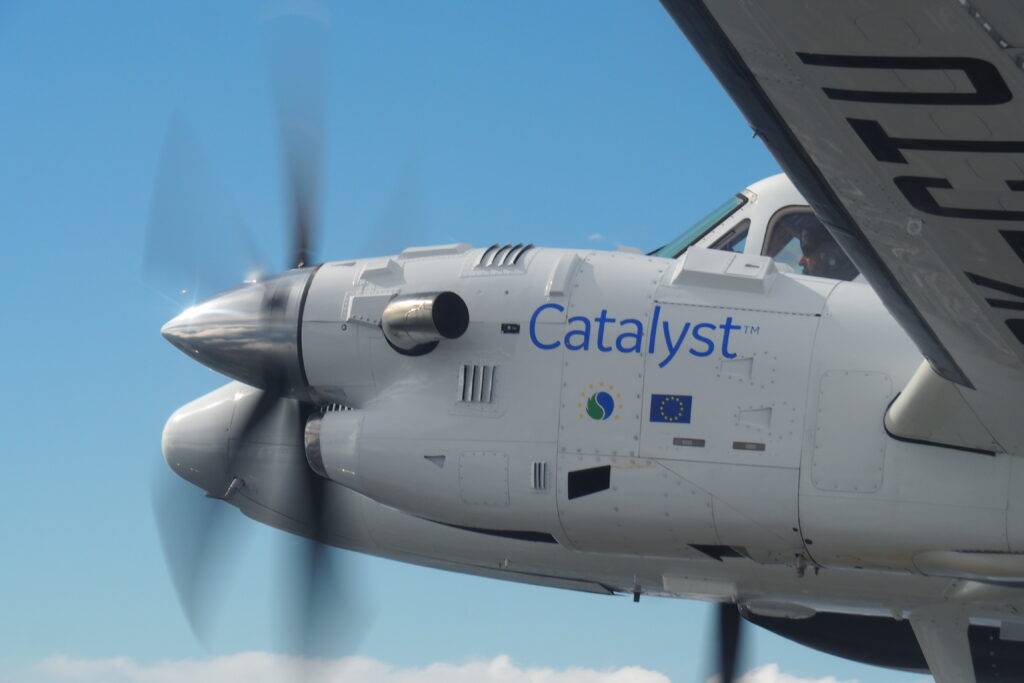The new Catalyst turboprop engine has completed its first flight. On September 30, 2021, the subsidiary of General Electric, GE Aviation, ran the newly designed clean-sheet engine during a 1 hour 40 minutes-long flight from and to the Beechcraft King Air Flying Test Bed in Berlin Airport, Germany.
Launched in 2015, the Catalyst engine became the first GE Aviation modern Full Authority Digital Engine Control (FADEC) controlled turboprop, which can deliver a power range from 850 to 1600 shaft horsepower (SHP). The manufacturer claims that the new turboprop is the first engine in aviation history to be made with 3D printed components.
According to GE Aviation, featuring the 16:1 overall pressure ratio and the latest digital technologies, the Catalyst engine consumes 20% less fuel and delivers 10% higher cruise power compared to its competitors in the same turboprop size class. In the meantime, the engine also has “ a jet-like, single-lever power and propeller control“ and reduces pilot workload, written in the GE Aviation statement.
“The Catalyst first flight opens a world of opportunities in the business and general aviation market with our launch customer at Textron Aviation, but also in the defense space for applications like drones and trainers. It can be, in addition, a super-efficient core that can pave our way towards hybridization of flight,” Riccardo Procacci, the chief executive officer at GE Aviation Turboprop Engines, said.
“We are very pleased by this successful first flight and proud of our team of outstanding professionals and specialists from all over Europe,” Procacci added.
GE Aviation completed the first test run of the new turboprop engine in December 2020. Later in 2020, the manufacturer delivered its first flightworthy engine to its launch customer Textron Aviation to power the single-engine turboprop Beechcraft Denali, previously known as the Cessna Denali. To date, GE Aviation has built 16 test engines, which have already collected more than 2,600 hours in operation during ground testing and have completed four certification tests.
A total of six GE Aviation sites are involved in the supply chain and assembly of the new Catalyst engine, including GE subsidiaries based in the Czech Republic, Italy, Poland, and Germany.
